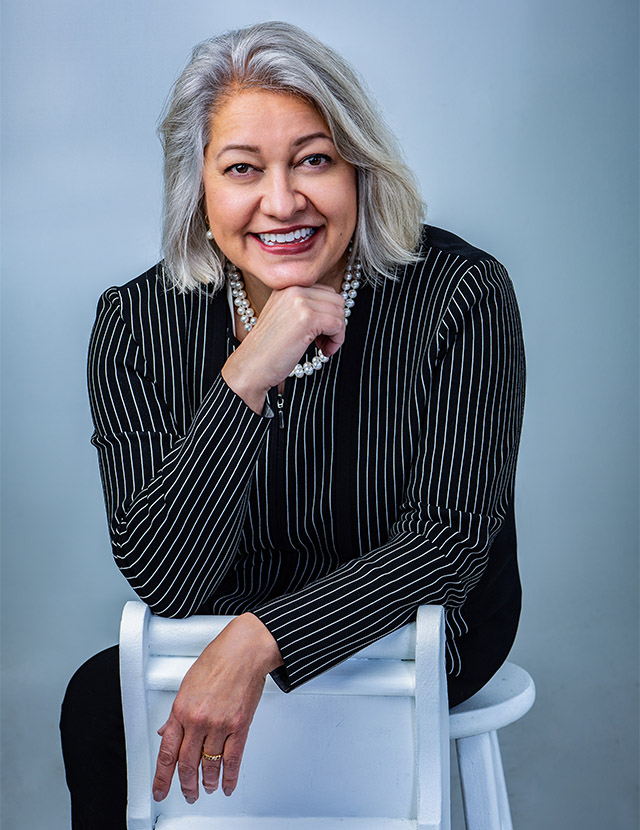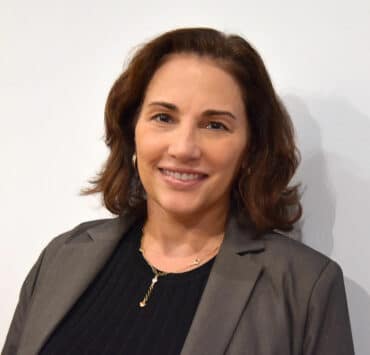|
Getting your Trinity Audio player ready...
|
Ann Anaya may have left the practice of law behind when she entered the diversity, equity, and inclusion (DEI) space in 2017, but she views her career transition as less a dramatic leap than a logical progression.
“The reason I focused on a career in law was because law is the one profession where a fair and just outcome was the expectation,” says Anaya, a former public defender and state and federal prosecutor who later moved in-house to practice corporate law. “As a litigator, I learned that a fair and just outcome was not guaranteed; justice is the result of fair-minded advocacy, inclusive empathy, and an unwavering commitment to equity. The same is true with the work of DEI,” she says.
Anaya advocates for fair and just outcomes every day in her current role as senior vice president (SVP) and chief DEI officer at Cencora, formerly AmerisourceBergen, a leading global pharmaceutical solutions organization centered on improving the lives of people and animals around the world. The organization’s 2023 rebrand offered Anaya the perfect opportunity to integrate DEI as an element of Cencora’s business strategy. In doing so, she is shaping and uniting a global society that recognizes the value of a culture of inclusion, encourages diverse perspectives at all levels, and fosters equitable outcomes across all geographies.
The reason I focused on a career in law was because law is the one profession where a fair and just outcome was the expectation. As a litigator, I learned that a fair and just outcome was not guaranteed; justice is the result of fair-minded advocacy, inclusive empathy, and an unwavering commitment to equity. The same is true with the work of DEI.
Ann Anaya, senior vice president and chief DEI officer, Cencora
Before joining Cencora over two years ago, Anaya blazed the trail for the first global chief diversity officer role at 3M, an industrial conglomerate, where she had previously worked as a lawyer in compliance and litigation.
“We looked at DEI for the first time from a global perspective and deepened and broadened the culture work of DEI—such that it would be a consistent experience across the global footprint of 3M,” she says. “We wanted the prioritization of diversity and inclusion to be part of the culture, no matter where you were in the world.”
Anaya jumped at the chance to bring that philosophy to Cencora. She immediately started envisioning ways to embed DEI into the company’s strategy and purpose—to create healthier futures. Anaya was also intrigued by the opportunity to drive DEI priorities through the lens of health equity. However, she knew that realizing her vision would require a more expansive definition of DEI.
“Oftentimes, when we think about DEI, we think about the origins of DEI as largely supportive of HR processes—the acquisition, development, and retention of diverse talent,” Anaya says. “But an elevated and advanced DEI strategy includes HR process strategy aligned with DEI priorities. As a culture strategy, it creates and fosters diverse perspectives, ideas, and backgrounds. And as a business strategy, it results in new solutions and growth, amplifying the enterprise brand.”
Advertisement
The chief DEI officer’s novel multipronged approach has allowed the company to take substantial steps forward in the strategic alignment of the business and DEI priorities, integrating company brand and communication functions, while partnering closely with talent strategy and process activation.
Anaya’s understanding of DEI as a business imperative means that her role at Cencora is multifaceted in nature. “It’s HR partnerships and data analytics, brand and communication work, and it’s culture and engagement work. Equally important, it is partnering with business leaders to pull DEI action planning into the execution of a business strategy,” she says.
In addition to pivoting between those various modes, Anaya must stay on top of an ever-evolving social responsibility and regulatory landscape. “People ask me all the time if I miss the practice of law, and my consistent answer is that I’m really thankful for my legal background,” Anaya says. “It allows me to analyze the current challenges around the work of DEI from a risk mitigation lens and form strategies that will be sustainable, resilient, and proactive.”
Just as she did throughout her career, Anaya embraces the use and power of data analytics to inform strategy at Cencora, using DEI metrics as a tool to measure the company’s DEI progress and enable accountability. “We work with our data analytics subject matter experts and external partners to use representation data for market availability and leverage those benchmarks to drive proactive talent strategies,” she says.

“In the last two years, we have also focused on creating a global inclusion index to measure inclusion within our culture,” Anaya says. “We’re using our inclusion index results and our inclusion learning journey to deliver on the promise of uniting a global culture around inclusion. Our action-oriented behavior-based inclusion journey ties directly into our brand value proposition brand and purpose at Cencora.”
Anaya’s DEI work is advanced by a commitment to transparency about Cencora’s achievements to date, as well as the milestones yet to come. She gathers the experiences of employee resource group (ERG) members, global in-person listening session attendees, and focus groups. In these groups, employees share best practices and offer feedback on areas where the company still has room to improve.
When it comes to her own priorities at Cencora and beyond, Anaya seeks to shine a light on the severe underrepresentation of Hispanic-Latinos in the C-suite and on corporate boards. Her mission: to act as a champion for the next generation of leaders.
“So many times throughout my career, I’ve been an ‘only,’” Anaya says. “We can’t benefit from the value of diverse perspectives with persistent underrepresentation in leadership positions. In my career, I haven’t seen the kind of progress that would be responsive to the tremendous growth in Hispanic-Latino leadership talent or to the persistent gaps in leadership representation. I am optimistic that we are better positioned than ever to make meaningful progress—we just haven’t yet realized that progress.”
Anaya is already seizing the opportunity to capitalize on that positioning, though. Now, she calls on her peers to do the same. “My leadership style is being a catalyst for positive change,” she argues. “Being action-oriented is essential, but being vocal and insisting on the progress that we want to see is just as essential.”

